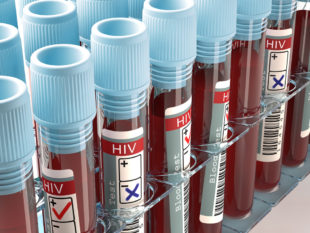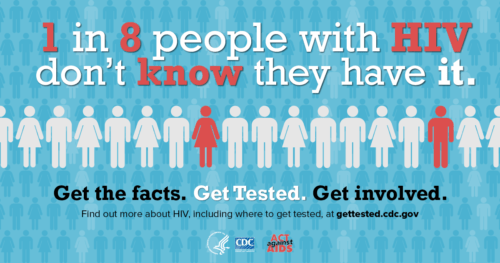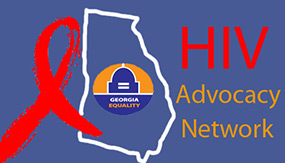Nearly 30-year-old criminal laws related to HIV are still in effect in Georgia – and a lot of other states.

“A lot of these laws were written in the mid-‘80s, when we were first becoming aware that the HIV and AIDS epidemic was growing. Back then, it was a death sentence” to become infected, said Dr. Fazal Khan, a physician and University of Georgia law professor. “You really first saw an explosion of these laws at the state level because of federal action.”
Nowadays, HIV is far less deadly, thanks to advances in medical science, and we know much more about how it is spread. So laws and policies about it are getting a new look.
At the end of the legislative session last week, the Georgia House passed a resolution to create a study committee on Georgians’ Barriers to Access to Adequate Health Care. The state’s HIV criminal laws are among the health care topics the committee is tasked with examining.
Besides punishing spitting, the current laws can also be used against HIV-positive people who do not disclose their status before having sex, sharing needles, performing paid sex work or donating blood, or who assault a law enforcement officer through spitting, biting, or throwing bodily fluids.
Based on what we know today, some parts of the law make more sense than others.
The CDC states that HIV can be transmitted only through certain body fluids – blood, semen, vaginal fluids, and rectal fluids – coming into contact with a mucous membrane, damaged tissue, or being directly injected into the other person’s bloodstream.

The likelihood of spreading HIV by spitting, biting or throwing urine or feces is minuscule, according to the CDC. But a person with HIV can still be charged with endangering people through these actions. (Traditionally, such behavior was punishable as a form of assault, but not governed by health legislation.)
Even if HIV-positive people take preventive steps in their day-to-day lives, such as wearing a condom or taking antiretroviral therapy drugs, they can still be prosecuted, Khan said. And regardless of whether HIV is transmitted, the offender can be convicted of a felony and listed on the Georgia sex offender registry.
The study committee will have until Dec. 1 to review whether the laws align with current evidence regarding HIV transmission risk, and recommend possible changes.
HIV less deadly, but still a problem
Georgia, and metro Atlanta in particular, have high HIV infection rates.
Back in the late 1980s, when many of the laws were passed, people infected with HIV usually progressed to AIDS, and their life expectancy was typically measured in months, not years. Highly effective treatments became available in the 1990s, and since then, better medications have made HIV into a chronic disease for many people – not so different from having diabetes.
When Congress passed the Ryan White Comprehensive AIDS Resources Emergency Act in 1990, it required states to take certain actions to qualify for federal funding. One was to criminalize any action intended to transmit HIV to another person, regardless of how dangerous the specific action really was.

Because states needed more money to treat growing numbers of people with HIV or AIDS, they got busy passing the new laws. Many of these laws are still in place, and today the Ryan White money still helps Georgia care for low-income citizens with HIV and AIDS.
Some experts say the laws have outlived their usefulness and should be eliminated from the state’s legal code, just as many anachronistic laws have been purged.
Khan says one option to reform Georgia’s current laws is to eliminate them completely — at least inasmuch as they target only HIV.

“If someone who has HIV is intentionally trying to pass it on to someone else, it is appropriate to factor in that they are exposing another person to the harm of contracting HIV,” said Khan. “But those are kind of a rare exception that can be criminalized under general criminal laws. To focus on HIV in particular is problematic.” That’s because hepatitis and other infectious diseases can also be transmitted through sexual contact, he said.
Emily Brown, a field organizer with Georgia Equality, an LGBT advocacy group, disagrees. She believes the criminal laws related to HIV should be revised but not erased.
“We find that states without specific HIV criminal statutes have a huge degree of variability on how prosecutors look at the issue,” said Brown, whose organization is part of the Georgia Coalition to End HIV Criminalization. “There are some ugly legal precedents for people that have been prosecuted because of HIV transmission.”
The Georgia Coalition to End HIV Criminalization is lobbying for changes, such as replacing HIV-specific language in the law with more general language, such as “infectious or communicable disease transmission.” They argue that only people who deliberately try to infect others, and who engage in high-risk activity – such as sexual intercourse or needle sharing – should be charged. The group also believes that in most cases the charge should be a misdemeanor and not a felony.
Georgia is one of 32 states with HIV criminalization laws. Colorado and Iowa recently reformed their laws, removing HIV-specific language and reducing the penalties.
Philip Clark, a public defender for the Western Judicial Circuit in Georgia, has represented clients charged with trying to spread HIV. He said one of the shortcomings of these statutes is that accusations don’t need independent verification.
“These cases often can become what you would call a swearing contest, from the point of defending it,” said Clark. “There is no requirement under law that an alleged victim’s claims be corroborated. Even when there’s conflicts in the evidence, and two parties are saying two different things – that’s still enough to convict someone on.”

Seven months from now, the Georgia Legislature’s study committee will recommend whether Georgia’s HIV-related laws need to be updated. They’ve been in place since they were enacted in 1988, and the state Legislature could decide to leave them intact or make minimal changes.
But Brown and other HIV advocacy groups in Georgia believe that the laws are a holdover from the era when HIV was a death sentence, and infected people were shunned out of fear.
“I believe that stigma is our number one enemy,” said Brown. “And I think that these laws are essentially codified stigma. They’re legalized stigma. They’re the legal and public policy equivalent of not eating off the same plate as someone with HIV.”
Victoria Knight is a graduate student studying health and medical journalism at the University of Georgia. She also works as a health reporter for WUGA-FM, the Athens-area NPR station, and has a bachelor’s degree in microbiology from the University of Tennessee. You can follow her on Twitter at: @victoriaregisk

